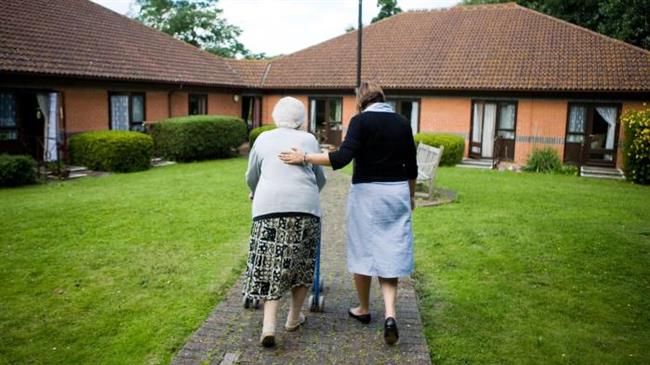Older people widely demonized, mocked in UK, ageism report finds
The UK’s ageist attitudes have been revealed in a report that shows older people are widely mocked, patronized and demonized by the rest of society.
Older people are mostly seen as incompetent, hostile or a burden on others, according to a review of the evidence that found they are subject to a litany of damaging stereotypes.
Negative attitudes are rife in the workplace, in health and social care and in the media, with women and people from black and minority ethnic groups facing a “double jeopardy” of discrimination, the paper by the Center for Ageing Better revealed.
The report – titled Doddery But Dear? – reviewed all existing research on attitudes to ageing. It found that older workers are seen as having lower levels of performance, less ability to learn and being more costly than younger workers.
In health and social care, the review found that stereotypes are even more negative, with attitudes focusing on death and physical decline, and ageing seen as a process of increasing ill health.
The media is a key driver of negative attitudes, the study says, representing ageing as a crisis or a societal burden, with the ageing population described using metaphors such as “grey tsunami”, “demographic cliff” and “demographic timebomb”. Often, older people are depicted as “villains” unfairly consuming too many of society’s resources.
The Center for Ageing Better is calling for a “fundamental culture shift” to overturn what it calls an ingrained culture of “pity and dislike” towards older people.
Anna Dixon, the group’s chief executive, said: “Ageism, like any other form of prejudice, has a profound effect on our self-esteem, our wellbeing and the way we experience day-to-day life. The responses to the Covid-19 crisis have thrown up serious questions about the way we think and talk about older people, and highlighted what an impact those attitudes can have.
“Our new research shows that in spite of the progress we’ve made towards challenging discrimination in Britain, we still have an ingrained culture of pity, dislike and disassociation towards older people.”
The number of people aged 65 and over will increase by more than 40% within 20 years, and the number of households where the oldest person is 85 and over is increasing faster than any other age group. Despite these profound changes to the age structure of our society, ageism is still rife: one in three people in the UK report experiencing age prejudice or age discrimination.
Other research shows that ageism has broad and far-reaching negative consequences. It can have a negative impact on physical and mental health and it can influence whether older patients receive treatment, as well as the duration, frequency and appropriateness of that treatment.
“Most of us are living many years longer than previous generations and this is a gift to be celebrated. But the outdated and harmful attitudes laid bare in this research are preventing too many people from making the most of those extra years,” said Dixon.
“Ageism is deeply damaging, and yet all too often it isn’t taken as seriously as other forms of prejudice or discrimination. Britain is long overdue a fundamental culture shift to overturn these attitudes, and the media needs to reflect the diverse experiences of people in later life.”
Deborah Alsina, the chief executive of the charity Independent Age, said: “Classing people in later life as a ‘burden’ is the ultimate insult and is particularly concerning in the current climate. The whole of our society needs to pull together, but these findings show that we are not always treating each other fairly. We must all work to ensure these ageist stereotypes are removed from our public discourse altogether, now and in the future.
“There needs to be a cultural shift in our attitudes towards older people. After all, with any luck we will all get there one day.”
David Sinclair, the director of the International Longevity Center, said: “The negative impact of ageism hits all ages. It results in people being forced out of work early and losing access to vital services.
“Ageism is far too prevalent across society. Tackling ageism means tackling patronizing attitudes to older people. Ageism fundamentally undermines older people’s participation in society and can contribute to greater isolation and loneliness.”
(Source: The Guardian)
Israeli strikes on north Gaza hospital ‘extremely dangerous, terrifying’: Director
VIDEO | Yemen targets Tel Aviv with Palestine 2 missiles
Pezeshkian: Iran resolved to complete North-South Transport Corridor
VIDEO | Iran-Syria: For Resistance
Qassam Brigades claims killing 3 Israeli troops in northern Gaza
More alive than ever: Sayyed Hassan Nasrallah's legacy grows stronger in martyrdom
Occupation of Syria’s highest peak Mount Hermon part of ‘Greater Israel’ project
Iran: Syrian people will decide their future without foreign interference










 This makes it easy to access the Press TV website
This makes it easy to access the Press TV website